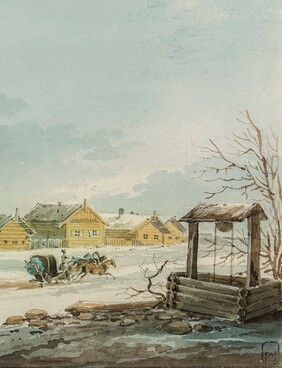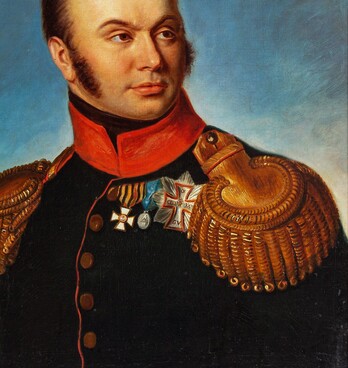The National Pushkin Museum houses a sofa that belonged to Leonty Filippovich Krupenikov, a Kazan merchant of the 1st guild.
Leonty Filippovich Krupenikov (1754–1839) became a hereditary honorary citizen in 1833. He owned a tannery, from where wagons with magnificent goat skins were sent to China in exchange for high-grade Chinese tea. Krupenikov sold tea very profitably in Kazan and at the Nizhny Novgorod fair. He also owned the Trinity Mill and three stone houses. In July 1774, he defended Kazan from the rebel troops of Yemelyan Ivanovich Pugachev. In 1787 and 1788, he was a member of the Kazan City Duma (which consisted of representatives of six “categories” of the urban population). In 1789–1794, Krupenikov was an assessor of the Kazan Provincial Magistrate. In 1802–1805, he became an assessor of the Kazan Provincial Court. He also was mayor of Kazan from 1809 to 1811.
In September 1833, during his trip to Orenburg, Alexander Pushkin visited him in Kazan together with Karl Fuchs, a physician, botanist, ethnographer, historian, archaeologist and numismatist, professor (from 1805) and rector (in 1823–1827) of the Imperial Kazan University. According to his wife, Alexandra Fuchs, the guests stayed with Krupenikov for “an hour and a half”. At the age of nineteen, Krupenikov was a prisoner of Yemelyan Pugachev. He shared his memories of him with the poet. Thus, Pushkin wrote down stories about Pugachev, which were published in the Kazan Provincial Gazette in 1843 under the title “The Story of Merchant L.F. Krupenikov about Pugachev’s Stay in Kazan.” “Here I was talking to old people, contemporaries of my hero [Pugachev]… asked questions, took notes, and I am very pleased that I did not visit this site in vain, ” Pushkin wrote to his wife in early September 1833 from Kazan.
The sofa belonged to Leonty Krupenikov and
subsequently passed to his great-grandson, Nikolay Petrovich Krupenikov. When
Nikolay and his wife Nadezhda Alexandrovna died in 1932 and 1933 respectively,
the sofa and other property were kept by their daughter Maria Nikolaevna
Krupenikova until her death on September 3, 1958. According to her will, all
the property passed to her sister Varvara Nikolaevna Prokasheva, nee
Krupenikova. The sofa entered the collection of the National Pushkin Museum
through the Expert Stock and Purchase Commission in 1962 from Sergey Ivanovich
Prokashev (husband of Varvara Nikolaevna).


